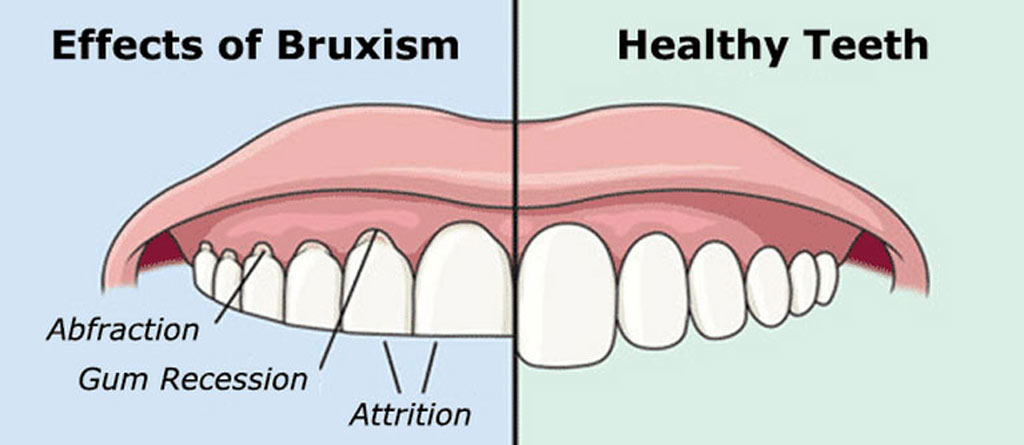No matter how diligently you care for your teeth during the day, you might be harming them overnight or in other situations without even realizing you are doing it. Many people experience teeth grinding and jaw clenching, or a condition known as bruxism, while they sleep or in stressful situations.
Over time, these actions can wear on your mouth and cause permanent damage if they are not addressed. This post will help you identify if you suffer from bruxism, learn more about what triggers it, and provide some short-term and long-term treatment options.
Causes and Symptoms
The most common reasons for teeth grinding and jaw clenching are stress and anxiety. This can occur during the day or while you are sleeping. You might not even realize that you are doing it, even when you are wide awake,
Bruxism is one of many ways that our body physically manifests stress even if our minds aren’t aware of it. The next time you are in a high-stress situation, pay attention to what’s happening in your mouth. Other risk factors for bruxism include substance abuse (drugs, alcohol, caffeine), sleep apnea, and bite, and alignment issues.
In several studies by the Indian Dental Association and American Dental Association, one telltale way to know if you suffer from bruxism is waking up with a sore mouth or a tight jaw. You might also notice that your teeth begin to wear down in odd patterns over time. These changes might not be obvious at first since many people grind their molars and back teeth that are not always very visible.
If you share a bed with another person, that person may also be able to determine whether you are grinding your teeth at night. The sound might not be loud enough to wake you up, but it could be loud enough for your partner to notice.
Long-term jaw clenching can lead to earaches and headaches. You might think that you have an ear infection or a migraine, but the cause is actually the jaw because of how closely it’s related to the other parts of your face.
Diagnosis and Treatment
The best way to confirm whether or not you suffer from bruxism is to mention your symptoms to your dentist. Your dentist can review the wear patterns on your teeth and examine your jaw to determine whether you’ve been grinding or clenching without realizing it.
From there, your dentist will likely prescribe a mouth guard, which will prevent your teeth from touching while you sleep and give you something to bite into if you clench your jaw. It won’t take long before you are waking up pain-free and more refreshed as a result of better sleep.
It will take some time to get used to mouth guard, but it’s important that you stick with it and continue wearing it. Your mouth will adjust over time and you’ll soon be wondering how you ever slept without one. While this approach will stop the symptoms of bruxism, it is not a cure for the underlying issues that are causing it in the first place.
To address underlying issue, your dentist may recommend a visit to a sleep specialist, who can more thoroughly test for issues like sleep apnea. If bruxism is caused by stress or anxiety, working with a therapist might help to resolve those issues and create long-term change.
